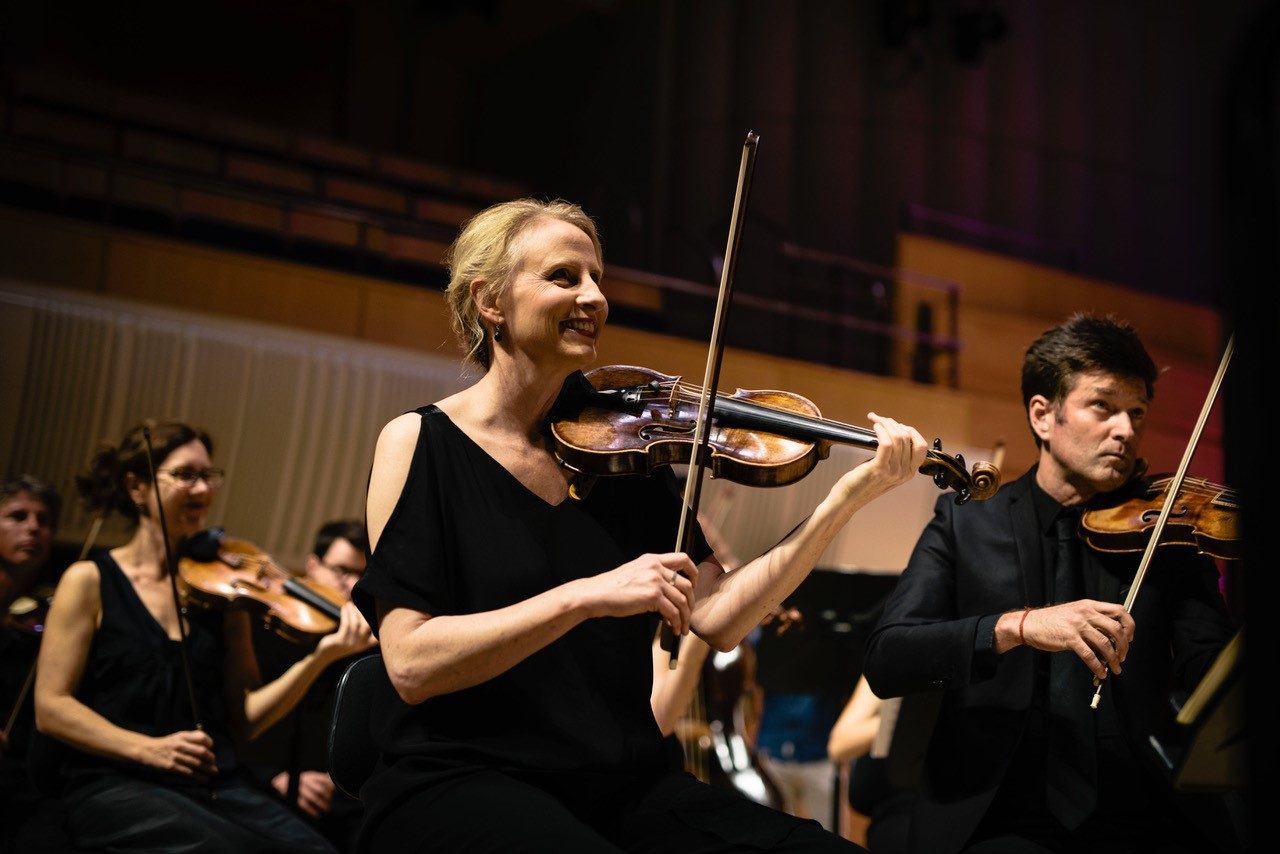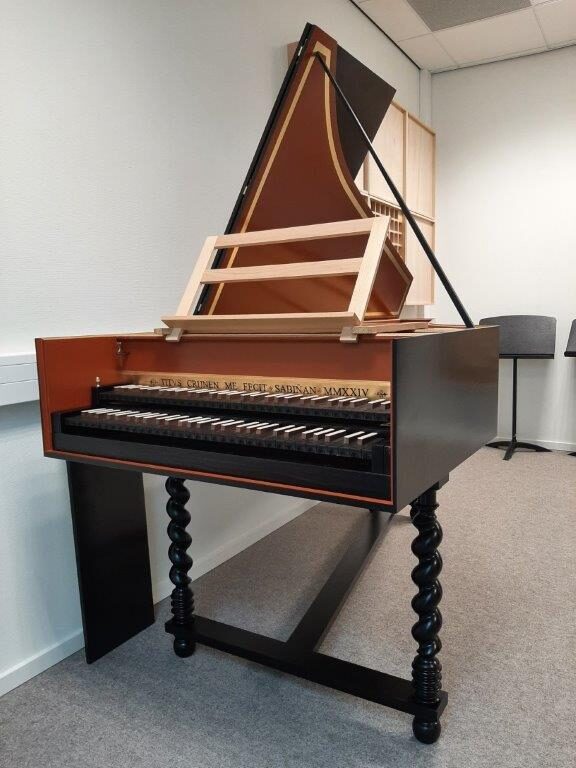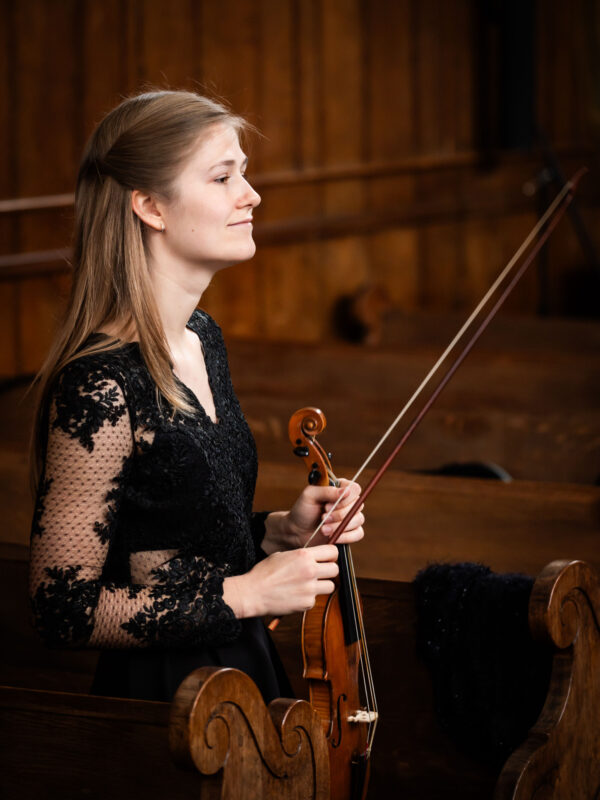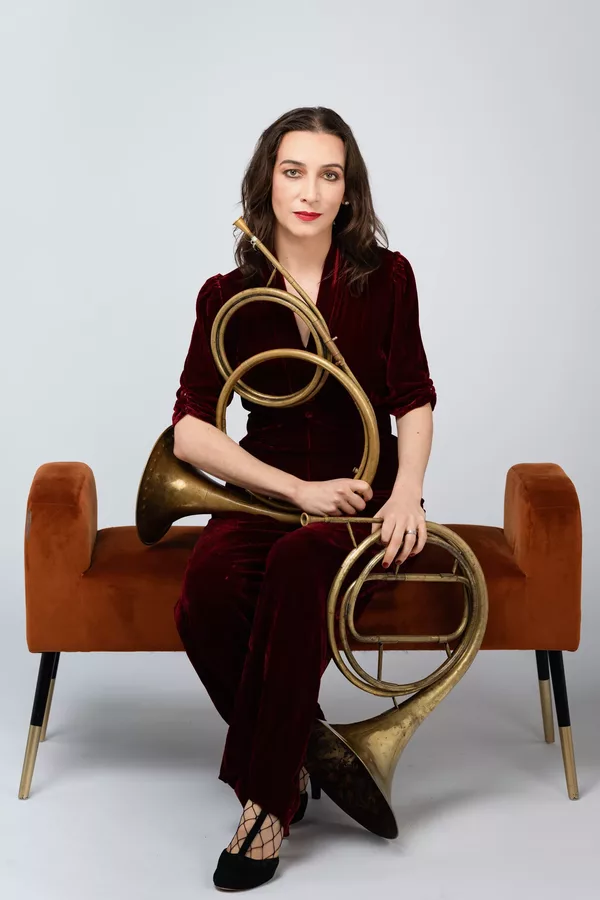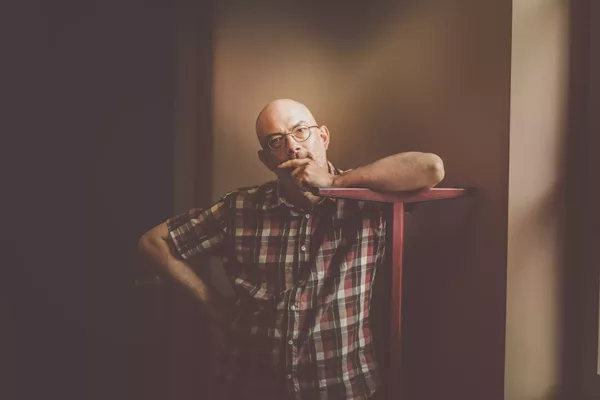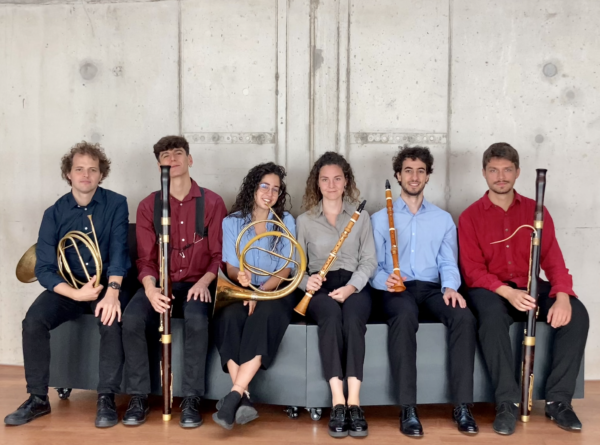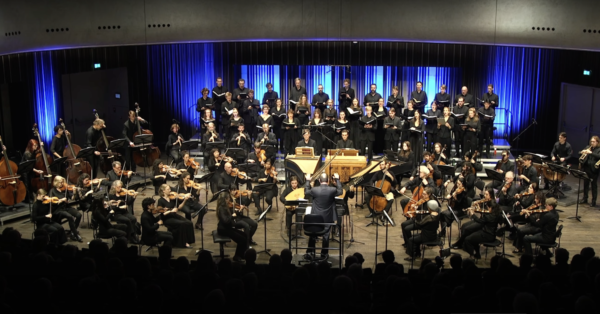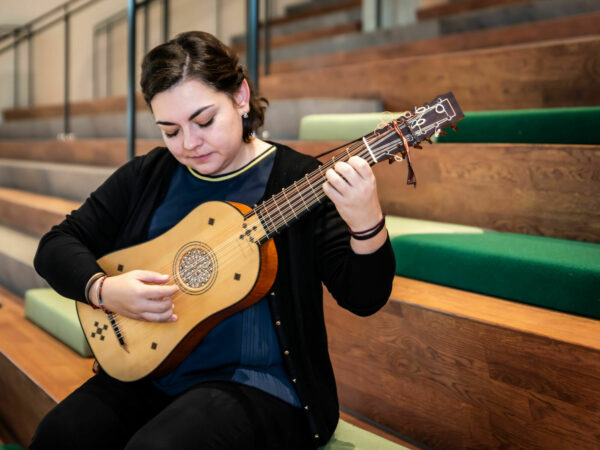Internationally renowned Australian violinist, director and concertmaster Rachael Beesley (Early Music & Music Education departments) addresses students of the Royal Conservatoire in times of Covid-19. Read her article ‘The Quiet Time’ below.
I’m now reconnecting back home, organising my teaching online, playing with the cat, catching up with layers of administration, playing with the cat, contemplating the idea of practicing, listening and reading and with all honesty, trying to have enough brain function to remember more than two items at a time when making a dash to the shops!!
I do hope you are all OK in the current circumstances and have strong support from friends and family. Coming to terms with the reality of keeping well and safe is our top priority, while, as performing artists, being in this double void of uncertainty and loss at seeing our livelihoods disappear before our eyes, is making everything a challenge. As we learn new skill sets to bring ourselves in line with recommendations and online with our work, we'll hopefully find some balance to deal with this difficult situation.
The Simple Things
So how do you stay motivated when there is simply no art happening ANYWHERE!! When we are alone or isolated from everyone it can be almost impossible to focus, find the energy to practice or be inspired enough just to even get dressed in the morning. There is also a high degree of anxiety as well as boredom around many areas of our lives at the moment so a simple starting point is to ask:
How do I feel right now and how much energy do I have?
1 Asleep
2 Tired
3 Blah
4 Meh
5 OK
6 Getting there
7 Comfy
8 Working hard
9 Pumped
10 Bright eyed and bushy tailed!
These uncertain times require inner strength and resolve, love and patience, and sheer determination - multiplied by 100! “So the best thing you can do is to bring your focus in until you find a simple thing you can do [at your energy level] and just do that one thing”. As clinical psychologist and author Nigel Latta also says “Doing the simple things will make a difference. Focus on what you can change now.”
FEEL - be aware of your creature comforts
MOVE - allow yourself to move, your body is intelligent!
ENGAGE - be mindful of your energy level
TOUCH - enjoy the contact with your instrument
RESONATE - search for overtones
FOCUS - phrasing, articulation, rhythm, balance, breathing
IMPROVISE - play around with the music
SLOW DOWN - enter the sound world of each and every note
The Warmup
Think about how you warm-up at the beginning of your practice session and develop an awareness of the resonance available in your body by doing exercises to wake up your body (Yoga/Pilates). This is going to give you the flexibility and strength needed to stay fit and help to balance your mind and body.
A warm-up is about searching for overtones and resonance in any easy and simple notes that come to mind. The goal is to find a firm and resonant sound that is focussed and sonorous. This can take a few minutes and involves playing at a comfortable range and dynamic for your instrument/voice but with the intention of seeing how it feels to play and to find enjoyment and pleasure in the sound.
Once overtones are being produced on every note, this creates a rich, positive feedback to the body through sound vibrations which reinforces a positive state of mind. Creating this sense of ease and comfort each time you play, gives your body and mind positive reinforcement which can then be found at any moment before a rehearsal, concert, recording or exam to feel comfortable and at ease with your instrument/voice.
The Music
Musicians communicate via the language of music rather than the language of speech and currently the world is demanding us to do everything via words (emails, news, texts etc) which is especially tiring for us. So even without our instruments just looking at the printed score/parts, visualising and vocalising, reading and analysing music we can begin to become more focussed and to utilise our skills as musicians which consequently reduces our anxiety levels.
Listening to music however, which non-musicians may regard as relaxing and calming, can often be an acutely emotionally experience for musicians at this time - bringing on states of sadness and longing over lost rehearsal and performing opportunities or anger and fear over everything being cancelled. The sacrifice the whole world is making at the moment is HUGE so if we can reframe our emotional state to feel that this action has real purpose and that we are contributing positively to stop the spread of the virus by staying home, this may help to improve our state of mind.
Musical choices and genres could be modified to set new listening goals to help bring us out of the daily spiral of social media and news cycles - so perhaps seek out early recordings of works to explore different performance styles. Pandemics have often brought about changes in style throughout history so use this time to listen to those periods of music and early recordings of classical repertoire, for instance, from the 1920s when the world went through a similar upheaval or notice the change for pop singers as they moved from projecting their voices to using microphones and therefore adapted their techniques to suit a new format.
The Fridge
The daily commute to the fridge and back has become a constant in our search for meaning and relief from boredom…
Just seen a news report about the stresses and strains of self-isolation. It reported that people are going crazy from being in lock down!
It was strange, actually, because I had just been talking about this with the microwave and toaster and all of us agreed that things are getting bad. I didn't mention anything to the washing machine as she always has to put a different spin on everything, and certainly not to the fridge as he is acting cold and distant. In the end the iron calmed me down. She said everything will be fine, which surprised me because she’s usually the first one to apply unnecessary pressure and get steamed up over nothing, even though I'm telling you guys, I have asked the bin to keep a lid on it. (source: Hajo Wienroth)
But where do we go to - if not the fridge, for solace?
The Rituals
Walking outside gives us the Great Escape from confinement, both physically and mentally. Take a different route around the block and seek out nature even if it is just to look up at the sky. Perhaps think about walking through a piece of music and use this time to take the scenic route to make sure every corner has been thoroughly explored and all the rough passages smoothed out. Generally this involves super slow practice, singing and engaging with the movement in your body.
Find space in your day to write down your emotions and feelings without judging them (try keeping a notebook near the fridge!) and perhaps take musician Susan Eldridge’s advice and “write down your goals. Be as SPECIFIC as possible … like atom level of detail. Write down the smallest action you can do today towards that goal and do it. Be brave and tell others about your goals and your actions and ask them to hold you accountable.”
Call or write to a friend, family member, colleague, teacher or mentor. Our relationships with our friends, colleagues and teachers normally give us an opportunity to experience a range of emotions and thoughts from a different perspective. Rehearsing and hearing other musicians practicing and performing on stage allows us to exist in temperaments and personalities that we may not display in everyday life. So creating a safe space where we can engage with music at a humorous, outrageous, fun, meaningful or profound level is important even when playing by ourselves, it’s just that now we must learn to be patient, graceful and at peace with our emotions.
Finally be kind and compassionate towards yourself and build rituals into your day. Light a candle, give yourself a hug, say a prayer or meditation, practice, read a bit, look up, reach up and take a deep breath!! Then relax…then take one more…and relax and another…and let us look forward to making music together in the near future.
With best wishes
Rachael
The Resources
Rachael Beesley is an internationally renowned Australian violinist, director and concertmaster. She graduated from the Royal Conservatoire The Hague in 1999 (Master of Music), studying with Sigiswald Kuijken, Elizabeth Wallfisch and Vera Beths. Rachael has become one of the world leaders in the field of historically informed performance. In this field and the unique area of Practising in Flow, she is invited to speak at conferences in Australia, New Zealand and The Netherlands where she has taught at Royal Conservatoire in The Hague, The Netherlands since 2000. More info: rachaelbeesley.com
Photo credit: Nick Gilbert
